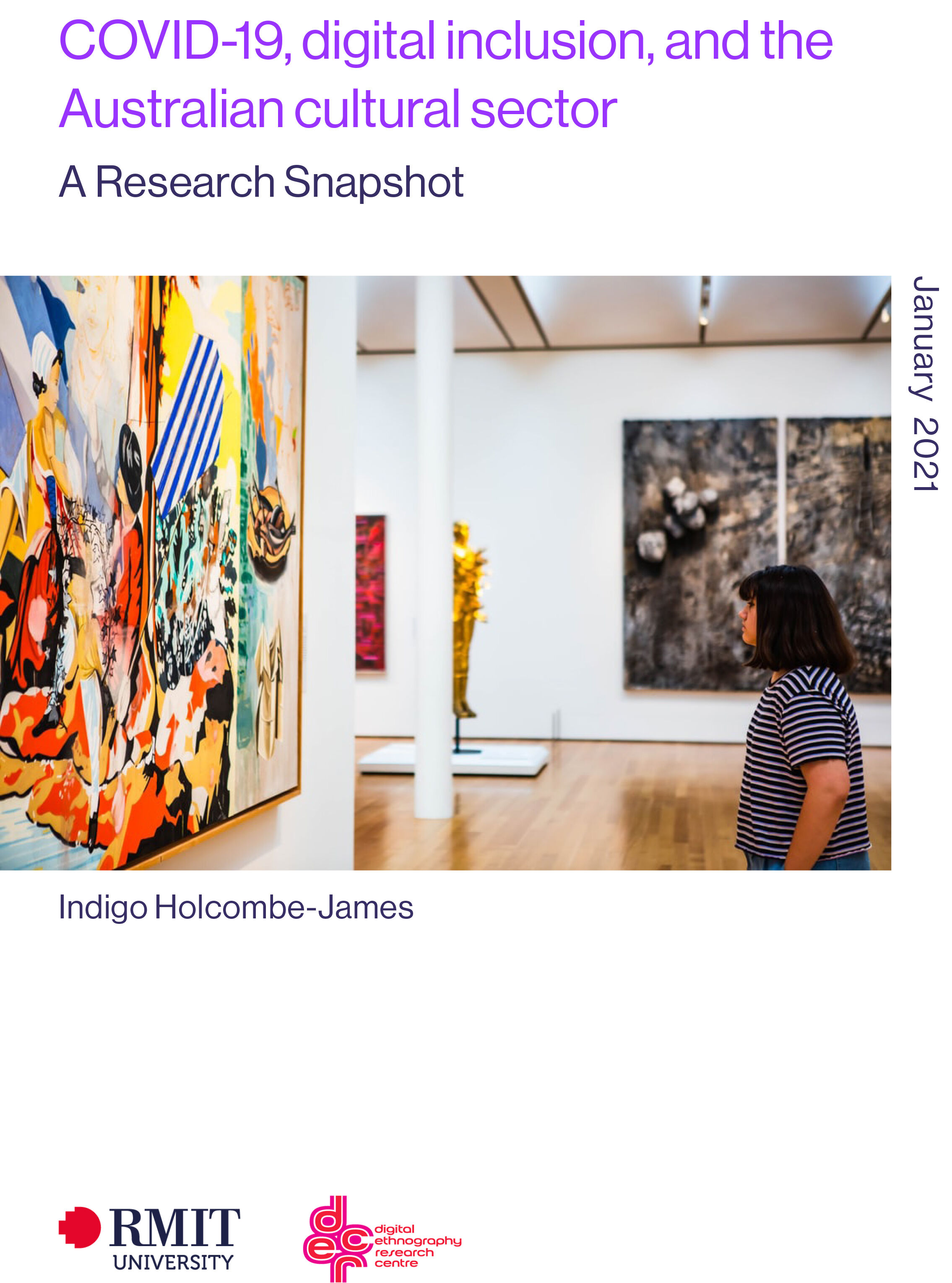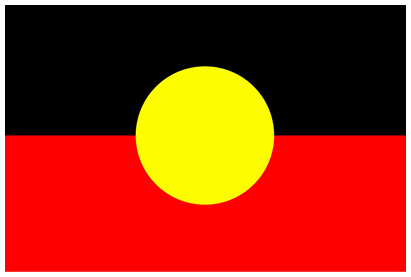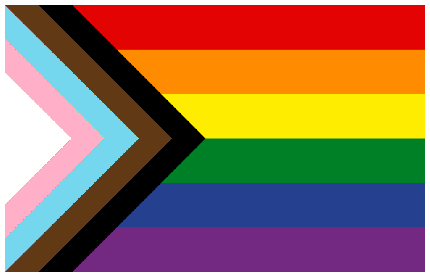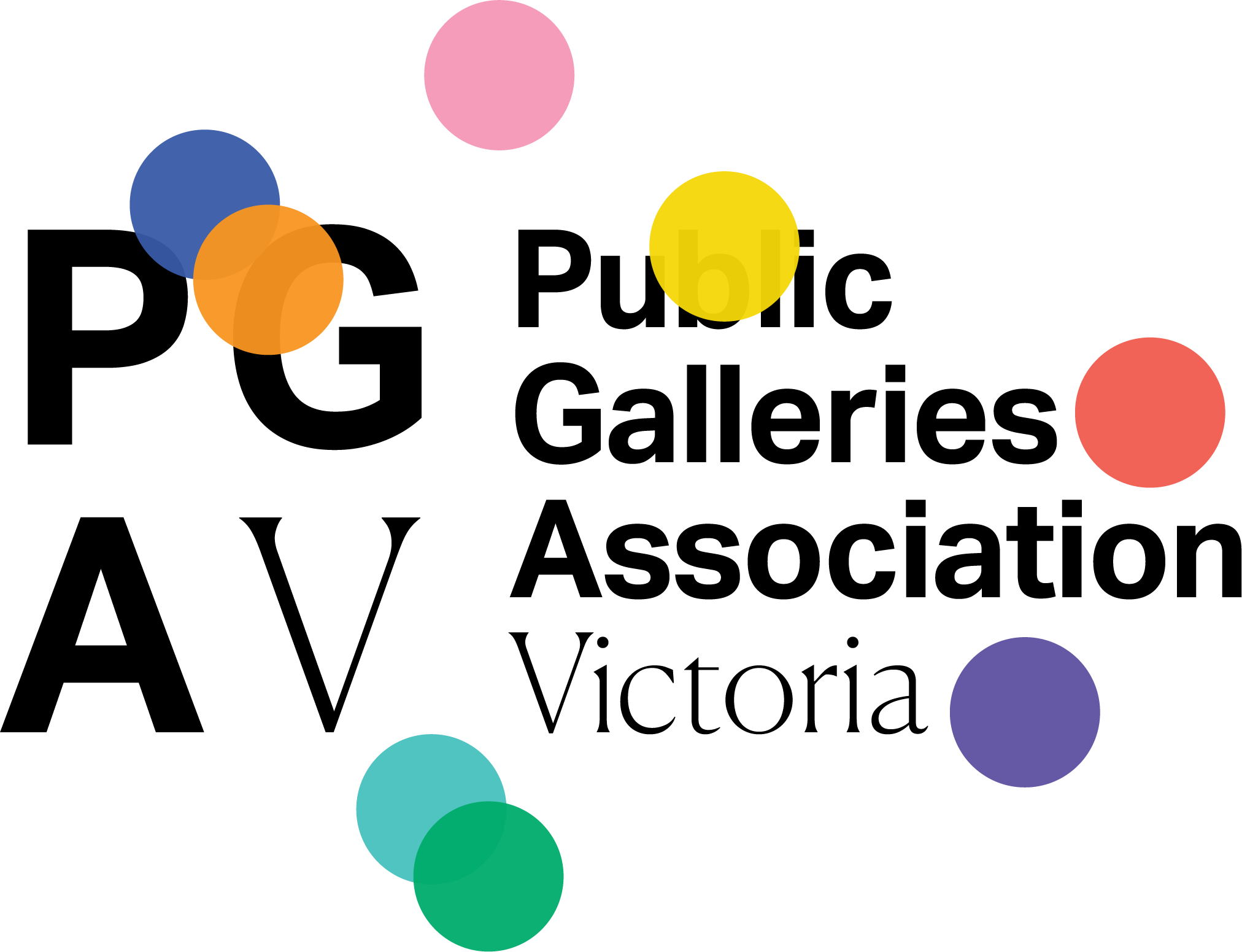COVID-19, digital inclusion, and the Australian cultural sector: a research snapshot
Indigo Holcombe-James
Digital Ethnography Research Centre (RMIT)
The COVID-19 pandemic has highlighted the critical need for digital inclusion within the cultural sector. Digital service delivery enabled ongoing activities and engagement, but the ability to do so required the existing experience of digital inclusion. For institutions that had ‘invested heavily’ (UNESCO, 2020) prior to the pandemic, digital activities provided a vital resource. Those that had not faced significant barriers.
This snapshot reports on the preliminary findings from research that asked how digital inclusion affected the Australian cultural sector in the wake of COVID-19. Drawing on qualitative research with representatives from 73 Australian cultural institutions, ranging from Artist Run Initiatives (ARIs), public, council-run, and university galleries, and state and national institutions, this report presents four key findings:
- The cultural sector experiences digital exclusion, but not all institutions are excluded in the same way. State and national institutions had far greater capacity than council-run, public, and university galleries, and ARIs.
- Access to connectivity alone is not enough. Although most participating institutions reported adequate internet access, accessing appropriate devices and platforms proved difficult.
- Creating and sharing digital cultural content requires specialised abilities that are not yet evenly distributed within, nor accessible to, all institutions.
- Digital activities are now part of everyday operations and require funding as such.

The Public Galleries Association of Victoria (PGAV) acknowledges the Wurundjeri Woi-Wurrung people of the Kulin Nation as the Traditional Owners of the lands where our office is located, and all Traditional Owners of country throughout Victoria and Australia. We recognise Aboriginal and Torres Strait Islander peoples enduring traditions and continuing creative cultures. We pay our respect to Elders past, present and emerging.
We are an LGBTQIA+ friendly organisation that celebrates diversity. We are committed to providing safe, culturally appropriate, and inclusive services for all people, regardless of their ethnicity, faith, disability, sexuality, or gender identity.







